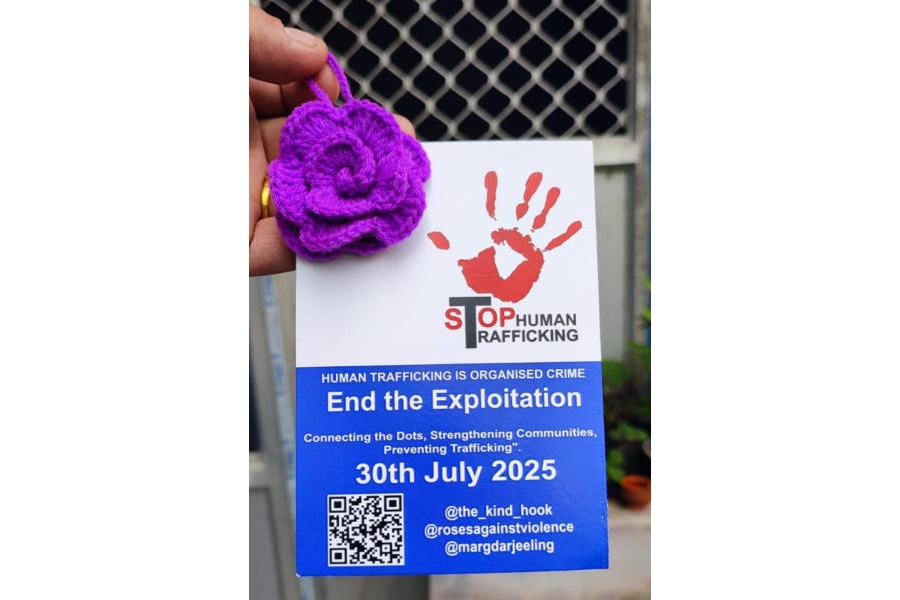Purple roses rained across Darjeeling on Wednesday, not from the sky, but from the hands of volunteers committed to a powerful cause.
As relentless rain continued to disrupt daily life in the hills with NH10 getting repeatedly blocked by landslides throughout the day, a unique campaign bloomed quietly, challenging another form of disruption, human trafficking.
Mankind in Action for Rural Growth (MARG), a Darjeeling-based social organisation, marked the United Nations World Day Against Trafficking in Persons on Wednesday by distributing handcrafted purple roses to key stakeholders, right from government officials to members of the public, to raise awareness of the issue.
“With the monsoon making rallies impractical, we decided on a quieter but symbolic gesture by distributing purple roses,” said Nirnay John Chhetri, founder of MARG.
The choice of the purple rose carries deep meaning.
“Roses, by nature, were never purple. Purple roses were bred and made exotic by human will. They exist not for their evolutionary purposes, but for the pleasure and profit of others,” said Chhetri.
Purple roses were developed through hybridisation in the 1800s, primarily by crossbreeding European and Chinese roses.
“Women and child victims of trafficking are no different from the purple rose. They are reduced to mere objects of pleasure and sources of profits,” added Chhetri.
The concept of the purple rose as a symbol against human trafficking originated in 1989, highlighting the sex trafficking of Filipino women and children.
MARG volunteers made purple roses through crocheting and knitting, and then distributed the same with a message.
“Volunteers from MARG, including students of Ghoom Girls’ Higher Secondary School, retired Loreto Convent teacher Deepa Pradhan, IPS officer Neeloo Sherpa, and my family members hand-crafted the roses through crocheting and knitting and helped us in our cause. Each rose carried a message of awareness,” said Chhetri.
The symbolic “shower” of roses extended beyond Darjeeling to Bijanbari, Siliguri, Jaigaon and Mekhliganj in the Dooars.
Members of the Students Against Trafficking (SAT), Youth Against Trafficking (YAT), and Villagers Against Trafficking (VAT) — all grassroots groups formed by MARG — participated in the campaign.
In the past decade, MARG established more than 30 such anti-trafficking clubs and has been actively fighting the menace since 2010.
“To date, we have rescued over 800 victims, including children who were sexually abused,” said Chhetri.










